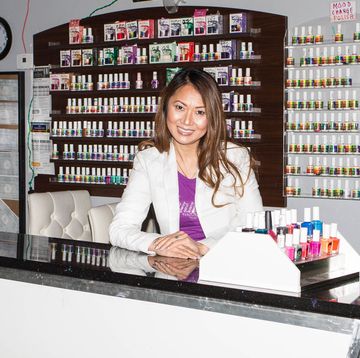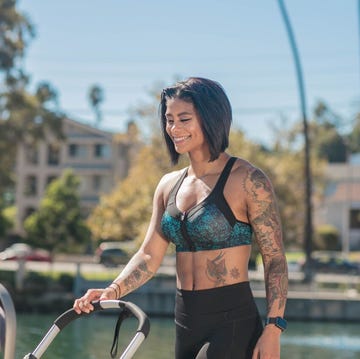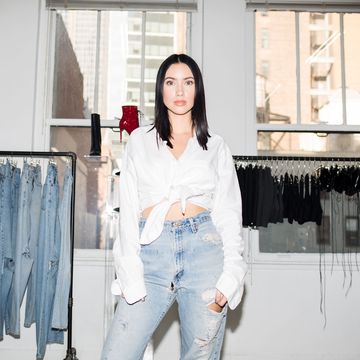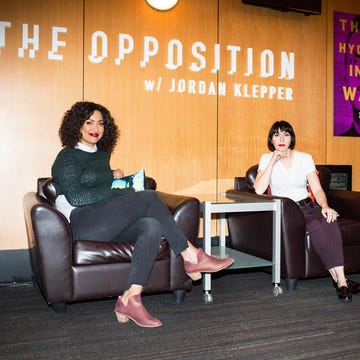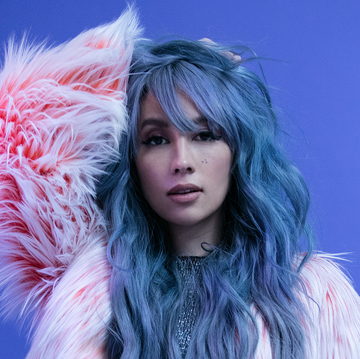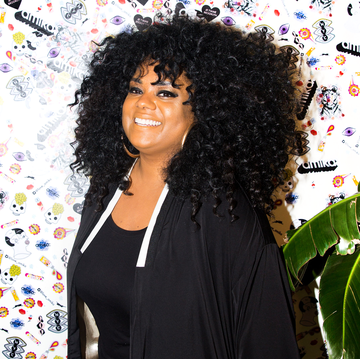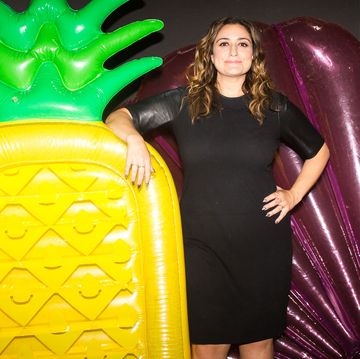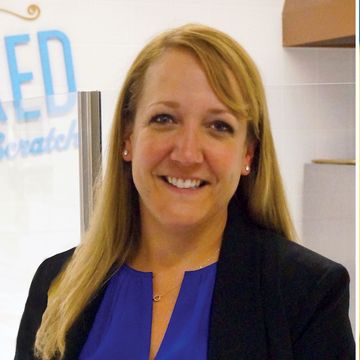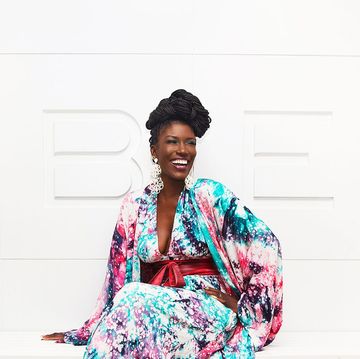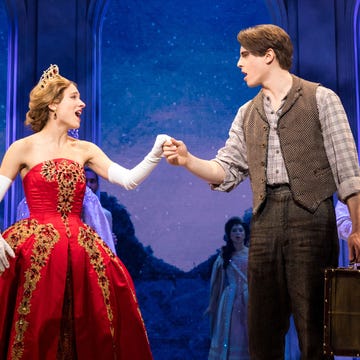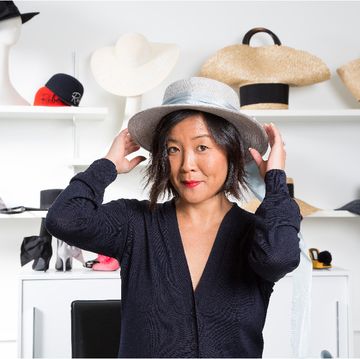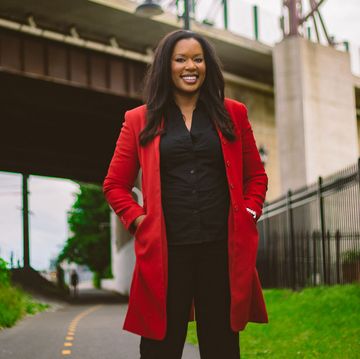A career in social media may seem like a dream job to anyone who spends hours upon hours tweeting, snapping, pinning, and Instagramming every day. But it's also one of the fastest-growing career paths in technology — nearly every company has a social media department these days. To become one of the top social media directors at Showtime, Ashmi Elizabeth Dang went to four colleges, switched career directions three times, and carefully cultivated an expertise in entertainment, marketing, and communications. Dang shares how she landed her dream job by allowing her instincts and curiosity to be her guide.
TV was a big part of what we did as a family growing up. My parents exposed my twin sister and I to a lot of the arts — going to the theater, to museums — but Saturday night was movie night at home. My father passed away when I was 12. I hold dearly those family moments around the TV that were so special.
I was born in New York City, raised on Long Island, then I moved back to the city to go to school and I haven't actually left. I attended the School of Visual Arts after graduating high school in three years. I was a very driven teenager who was excited to get out on my own. The plan and what happened are two different things. I studied art for two years, then I had an internship that made me realize [that a career in art] wasn't what I wanted to do for a living.
The internship was at the Graphic Artists Guild the summer after my second year of college there. I loved art, but it didn't feel personal. I really wanted to have a career working in something that I had a passion for. I was a huge fan of music, so I decided to switch career paths.
I switched schools to the State University of New York in Farmingdale in my hometown. I took liberal arts classes while I was deciding what to major in. I ended up getting an internship right away at a prominent alternative radio station called WDRE out on Long Island. I manned the phone lines; I worked concerts and supported DJs doing promotional spots — fun campaigns that were unique to the radio station. It was my first real exposure to marketing.
I went to school for a year, and in the process of interning, I had a lot of exposure to people at record labels. As a fan, I would make mention that, "Oh, I saw this band and I think they're great." After a few of those [conversations], I got an offer to be an assistant for Atlantic Records, working for the office of the chairman. I came back to the city to work full-time. I enrolled at college number three, taking classes at the film school at NYU.
I was at Atlantic for about two years, supporting the Chairman's office's efforts in signings and artist development, and I was introduced to scouting. From there, I got a job as as an entry-level scout for Mercury Records. Scouting turned out to be researching local music scenes and going to a lot of shows at night. I was young but not young for the music industry. In music you have to have stamina. I was going out four to five nights a week and traveling all over the country.
After a few years, I moved on to a label called Outpost Recordings [to work in A&R (artists and repertoire)], as the director of A&R/East Coast. A&R is scouting bands, signing them, and overseeing the production and marketing process for the whole life cycle of their record. That led to me eventually having a very senior role in the music industry doing A&R for Capitol Records on the East Coast as the senior director of A&R. I had the privilege of working with a lot of amazing artists, like Ryan Adams from Whiskeytown, The Crystal Method, and Curt Smith from Tears for Fears.
In 2002, the iPod came out. I thankfully had the foresight to see that this was going to make my job obsolete. I decided I wanted to shift gears and go work in television.
So I retired from music. I even had a retirement party. I had done everything I wanted to do in music. I felt very accomplished and well respected and probably could have continued on. But I knew that I was ready to move on.
It was a very difficult transition. I never graduated from college even though I had succeeded in the music industry. And this was just after 9/11 when a lot of people in New York were out of work. I decided to go back to school and get a degree that represented everything I had done and wanted to do. I went to the City University of New York [to study] communications with a concentration in graphic design. I went back to school full-time at night and temped during the day.
I had made connections throughout my music career that led to an opportunity to temp at Time Warner doing administrative stuff in the corporate office. And that led to a position at HBO in digital marketing. I was hired as the associate manager of online marketing and affiliate and advanced products. It was a very new [kind of] marketing. At the time, it was managing the email database and creating sweepstakes banners. Social media hadn't hit yet. Being in school at the time afforded me the opportunity to get on Facebook [when it was a student-only platform]. That was my first exposure to social media. I also was a pretty early adopter of Twitter, and it became clear to me that this was a rare opportunity to be establishing a new career path. I saw that this was a new channel that was untapped.
I started getting more invested in how it could be used as a marketing channel. I spent a lot of time on Twitter just reading about it. In the early days of Twitter, it was all digital thought leaders and early [tech] innovators. I live-tweeted the presidential debates [in 2008], and I was mesmerized when Barack Obama followed me on Twitter. All of a sudden, I got it. I aspired to be heard and I was heard.
I got to dabble in it a little bit at HBO, but I started getting consulting opportunities on the side. That led me to leave HBO after seven years and pursue social marketing on my own.
A former colleague from HBO went to work at an agency [that represented various companies and brands], and she needed support in social. My first project was working on Michael Jackson's This Is It and then supporting some of the brands at Comic-Cons [through social media marketing]. I had a lot of work fairly quickly. There were really not a lot of people who were social-media-inclined at the time. It just kept leading to more and more opportunity. I did it for a year on my own, but I wanted to work in television. I thrive in a structured environment. I like collaborating with others. So I asked myself, How can I work in TV doing social media?
My first step was going to the agency side. I went to an agency called 360i. I was their social and digital lead for Bravo TV. I would present our strategic recommendations to the client, and they would decide what they wanted us to execute. The job is very much about understanding your brand, your marketing goals, and your target audience — who they are and what they do in social — and then making sure you're active in the right place at the right time with the right content. That applies as much for TV as it does for finance as it does for anything.
The uniqueness of the social marketing channel is the relationship building that can be done. For example, if you tweet to a brand and that brand responds to you, that's what makes this channel unique over, say, a print ad. A print ad can't respond to you.
I spent two years on the agency side before arriving at Showtime. I always had the network on my radar. We're in the golden age of TV, and I think Showtime is at the top of the list in terms of programming. It was something that I was targeting. I used LinkedIn every day looking for jobs in TV. An opening came down on my feed for Showtime. I had a neighbor who had introduced me to the department head that I now work for. I couldn't remember his name so I went to LinkedIn and used the advanced search tools to find him. Then I reached out and reminded him about who I was and said I was interested in the position.
I'll be in this job two years in September. It's exactly what I've been building toward. I feel incredibly privileged to do what I do for a living. My team's job is to talk to the superfans and make content that gets them excited about their favorite shows. I would point to Penny Dreadful as one of the best examples of what we do creatively and strategically. During a premiere event we were hosting, we created a companion digital experience for the fans. They asked the series creator to name them, the fans. And he said, "The Dreadfuls." They've adopted that name and created a hashtag where they talk to each other all day long. We've held events for them and created merch around it. It's an incredible example of what we can accomplish with the right engagement.
My day-to-day job involves a lot of meetings. I have a team charged with all the community strategies — everything from creative development [conceptualizing the social media strategies] and [writing] copy to fan engagement. But the other half of my job is collaborating across departments. It could be working on short-form video with our content person or managing our social agency or working with the partnerships team on how to socialize their regional efforts to get national exposure. Probably one of the most fun things we do is live-tweet every episode. Sunday nights, my team and I are online with the fans. They talk to each other while the show is on. I can't say I enjoy anything more than watching a TV show with superfans and they're commenting on it and we're helping to steer that conversation. We've created a digital water cooler. It reminds me of the experiences I had as a kid growing up in a TV household and talking about it constantly.
One of the most significant things I've learned in my career is that it takes more than being great at the executional side of your job to succeed. Transitioning from music to TV was moving from an incredibly creative, social, and informal work style to a more traditional, corporate environment. As an A&R executive, I attended showcases in clubs, listened to music in my office, worked closely with musicians, managers, and producers, and was in the studio. When I moved to TV, although I had work experience, I didn't have corporate experience. With that came life lessons such as understanding company culture, adapting my work style for a more formal environment, and being conscious of how I am perceived.
Social media is still in its infancy as a career path but has quickly become a key marketing channel. When many of us started, it was an evolution of online marketing that was learned through experience versus studying it in school. I approach my personal social media strategy just like I do at Showtime. LinkedIn is where I'm a thought leader. Twitter is where I share my opinion and advocate for things I care about, and Facebook is where I engage with my friends.
I'm doing exactly what I want to be doing. Social TV marketing was the goal, and I often joke that my next career will be "lottery winner."
Correction: This post has been changed to add Dang's role at Mercury Records and clarify her roles at Atlantic Records and Outpost Recordings.
Get That Life is a weekly series that reveals how successful, talented, creative women got to where they are now. Check back each Monday for the latest interview.
Follow Heather onTwitter.


